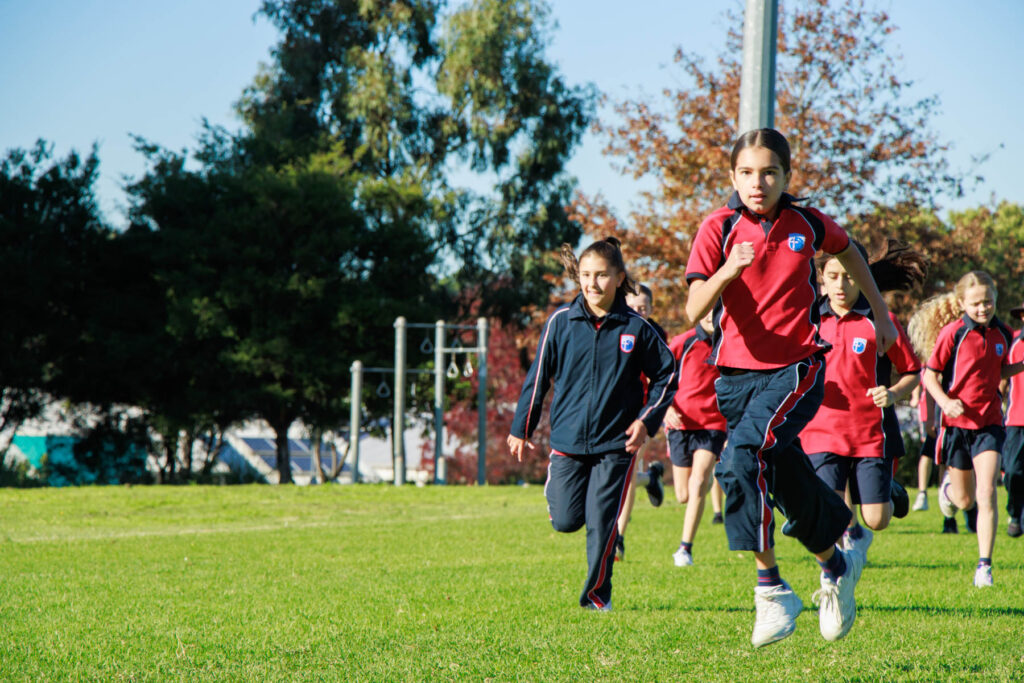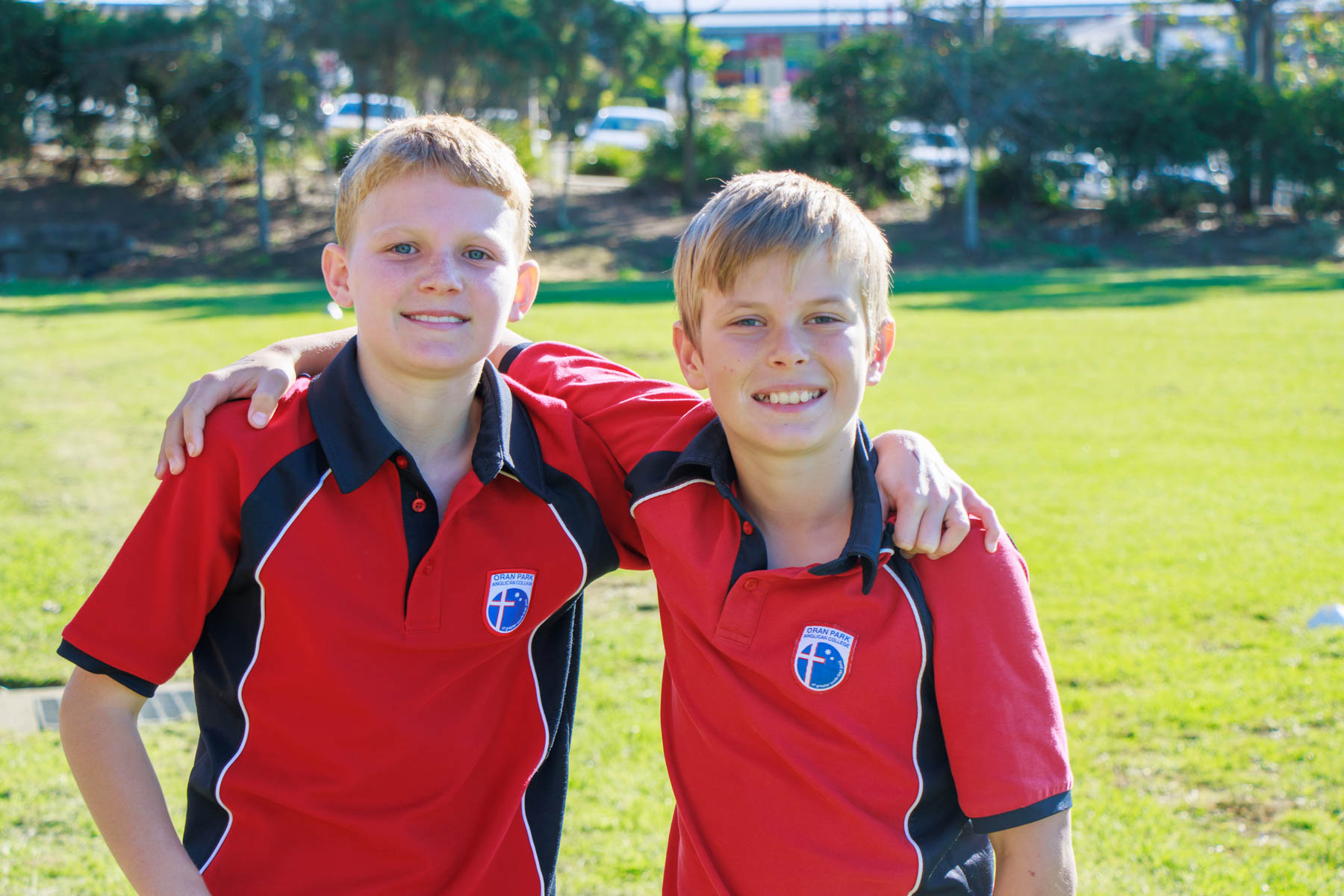Protecting Young Eyes: Strategies for Safe Online Experiences
Last week I had the opportunity to hear Dr Kristy Goodwin speak on the nature of living in a digital culture that is always switched on, always demanding our attention and often compromising our wellbeing. Dr Goodwin is a researcher and speaks about the ways which technology shapes children’s, teen’s and adult’s wellbeing, health and learning. She had some thought-provoking and helpful things to say about setting digital boundaries and I would like to share five of them with you:
Five simple things parents can do to minimise the likelihood our kids will see inappropriate content online:
Don’t prematurely dunk them in the digital stream
I understand that it’s hard (really hard) when your son or daughter is telling you that every child in Year 3 has TikTok and you prohibit them from setting up an account. One of the reasons we struggle and often allow our kids to have access to apps, websites and digital tools before we feel they’re ready is because our kids tell us they’ll be socially ostracised as everyone has access to the app/website/tool they’re requesting.
As humans, one of our fundamental psychological needs is for relational connection- we need to be part of a tribe and we want that for our kids. This exchange is usually followed by a statement along the lines of, “I hate you. You suck. It’s so unfair that I can’t have TikTok.” when you deny their access. We have to be alright with limiting the apps, games, websites and digital tools our kids have access to. We have to be okay if our kids don’t agree with our boundaries.
Set firm boundaries as to WHAT they can use/download/play/watch
I firmly believe that focusing on what more than how much is really important. Know the digital playground where they’re playing and know the potential pitfalls and risks. I strongly recommend that you do due diligence before allowing them to set up a social media account, or access to a game- I suggest the eSafety Commissioner and Common Sense Media for advice. The legal age, for most social media platforms, is 13 years. This has nothing to do with children’s psychological readiness to use these tools.
The Children’s Online Protection Act (COPPA) imposes certain requirements on operators of websites or online services directed to children under 13 years of age. You know your child or teen best and know when they’ll be able to cope with the myriad of demands that the online world poses. When you need to say no, try to provide reasons and a rationale for your decision (not just a hard no). I’ve found that it’s hard for kids and teens to argue with science, facts and the law. “No, you can’t have a TikTok account because you’re not 13 years old and that’s the legal age when you can have an account.” Also, remind them that it’s a “no for now.” Let your children or teens know that you’ll reconsider their request at a later date (and by later, you don’t mean tomorrow night).
Don’t use technology as a punishment tool
If there’s any perceived threat of ‘digital amputation’ it will discourage children and adolescents from seeking guidance from the pilot of the plane (ie. their parents or caregivers) when they see something inappropriate online. This is true for viewing unsavoury content such as pornography, violent or racial content. It is also the case when online predators approach children or teens, or when they’re dealing with cyber-bullying incidents.
Instead of approaching you as the pilot of the digital plane, they often seek advice from their fellow passengers (i.e. their peers and/or siblings) who are often just as ill-equipped as they are to safely navigate and deal with these situations. By all means, have boundaries in place as to your digital rules and expectations and clearly articulate these to your children. Removal of devices or withdrawal of access to technology will not, as with any punishment, deal with the root of the problem. Confiscating their devices tends to make us feel ‘good’ as parents as we feel like we’ve handled the situation and curtailed their behaviour, but only in the short-term. Long-term behavioural change requires us to explore what’s driving their behaviour. I particularly like Dr Justin Coulson’s Explore, Explain and Empower approach.
We need, as pilots of the digital plane, to encourage our kids to come to us when they experience a problem online. When they see a distressing video, when they’re a victim of cyber-bullying, or when a predator approaches them online, we want our kids and adolescents to feel assured that they can come to us and report the incident, without fear that they’ll be stripped of their digital devices. Talking openly, having ongoing conversations about their online activities and showing a vested interest in their digital pursuits can help to build this rapport and assurance.
Keep devices in open areas (and out of bedrooms and bathrooms)
As the pilot of the digital plane we also need to establish boundaries around where devices can be used at home. Where are your no-go tech zones? I strongly encourage keeping devices out of bedrooms, bathrooms and meal areas. Rather than focusing on where devices are prohibited, instead outline where they can use devices. Shift the conversation as to the best ergonomic positions and setting up zones in your home for particular activities. Why? Your teenage son or daughter is much less likely to be sending ‘nudes’ when she uses her phone in the kitchen and lounge room, but much more likely to be doing it in the bathroom or bedroom.
Again, encourage your children and teens to establish these boundaries with you and provide a rationale for your preferred areas (without terrifying them). For example, if you want to keep devices out of bedrooms, you could explain that using devices before sleep can have a detrimental impact on both the quality and quantity of their sleep and poor sleep results can have a negative impact on their mood, focus, physical health and even growth.
Minimise their use of social media at night
At night, the logical part of the brain that helps with self-regulation and helps with working memory, the prefrontal cortex, switches off and the amygdala (emotional centre of the brain) fires up. This can be a diabolical combination: their logical, problem-solving brain is off and their emotional brain is switched on. This is why a lot of cyberbullying and online predatory behaviour occurs at night. So as the pilot of the plane, you also need to set limits around when your kids and teens can use devices.
If you are interested in exploring this further, or are interested in reading about other practical ways to minimise the negative impact of technology, can I encourage you to visit Dr Goodwin’s website: https://drkristygoodwin.com/
God bless,
Mrs Jenny Squire
Deputy Principal – Head of Junior School
Sport

IPSSO
After a false start due to wet grounds, we were able to get the Winter IPSSO season underway in Week 4. We played against Broughton Anglican College. Well done to our AFL teams, who had comprehensive victories! Well done also to the soccer teams who won their games and the volleyball teams who continued to improve.
K-2 College Sport
K-2 has enjoyed doing Zumba with the ever energetic Miss Sarah over the last two weeks! Zumba develops many fundamental movement skills in students, including jumping and skipping, and also gives students an appreciation of many different styles of dance.
Cross Country Carnival
On Thursday Week 4 the rain held off and the ground had dried up enough to allow us to hold our 3-6 Cross Country Carnival. It was great to see many students running the track to the best of their ability and showing humble sportsmanship during and after their races. We are thankful to God for the good weather and to the staff that worked hard to put this event on. The students who have qualified for the CSSA State Cross Country Carnival next week will be notified soon.
3-6 College Sport
In Term 3, our Year 3-6 students have continued learning Zumba skills and are enjoying learning to play AFL. These skills will be very useful for them as they develop their sporting skills and as they prepare to participate in the House Cup at the end of the term.
CIS Rugby League Trials
On Monday Week 3, we were able to send two students to the CIS Rugby League Trials, involving students from all the independent schools in New South Whales. Congratulations to Cooper in Year 6 who qualified for the CIS team, which is an outstanding achievement! Well done also to Dom in Year 6, who also trialled well.
CSSA Zone Girls Soccer Gala Day
On Monday Week 4, we sent two teams to the CSSA Zone Girls Soccer Gala Day at Barden Ridge. It was a glorious day in which we played games against several other schools in our zone. Our Senior girls played some excellent soccer, making it to the semi-finals. The junior girls played brilliantly, remaining undefeated and not conceding any goals during the group phase, eventually going down in the final in extra-extra-extra-extra time! Well done to both our girls soccer teams on their outstanding performances and their sportsmanship.
CSSA and CIS Nominations
From time to time, the College can nominate some of our exceptional athletes to trial for CSSA or CIS representative teams. These teams are selected for high level representative competitions, drawing from almost 100 schools across NSW. If you would like the College to nominate your child for one of these events, please follow the procedure below:
- Go to the CSSA website to see the list and dates of these trials (cssa.net.au)
- Email me (jbarber@opac.nsw.edu.au), expressing your child’s interest, background, and skills in the sport
- If they fit the requirements of the trials, I will nominate them to attend
- Attend the trials with your child
Upcoming Events
Week 5
Wednesday (29/5)
- IPSSO training at 7.45 am for all students selected in an IPSSO team.
- IPSSO games against St Gregs. All sports at St Gregs. Junior games begin at 11.30 am, and senior games start at 1 pm.
Friday (31/5)
- CSSA Cross Country
Week 6
Monday (3/6):
- CSSA Zone Boys Soccer and Girls Netball Gala Days. Bus leaves at 7.20am from the College for selected students.
Wednesday (5/6):
- IPSSO training at 7.45am.
- IPSSO games against St Peters Anglican Grammar. Boys soccer and AFL at Doohan Reserve, netball and volleyball at OPAC. Junior games begin at 11.30am, and senior games start at 1 pm.
God bless,
Mr Joshua Barber
Junior School Sports Coordinator



